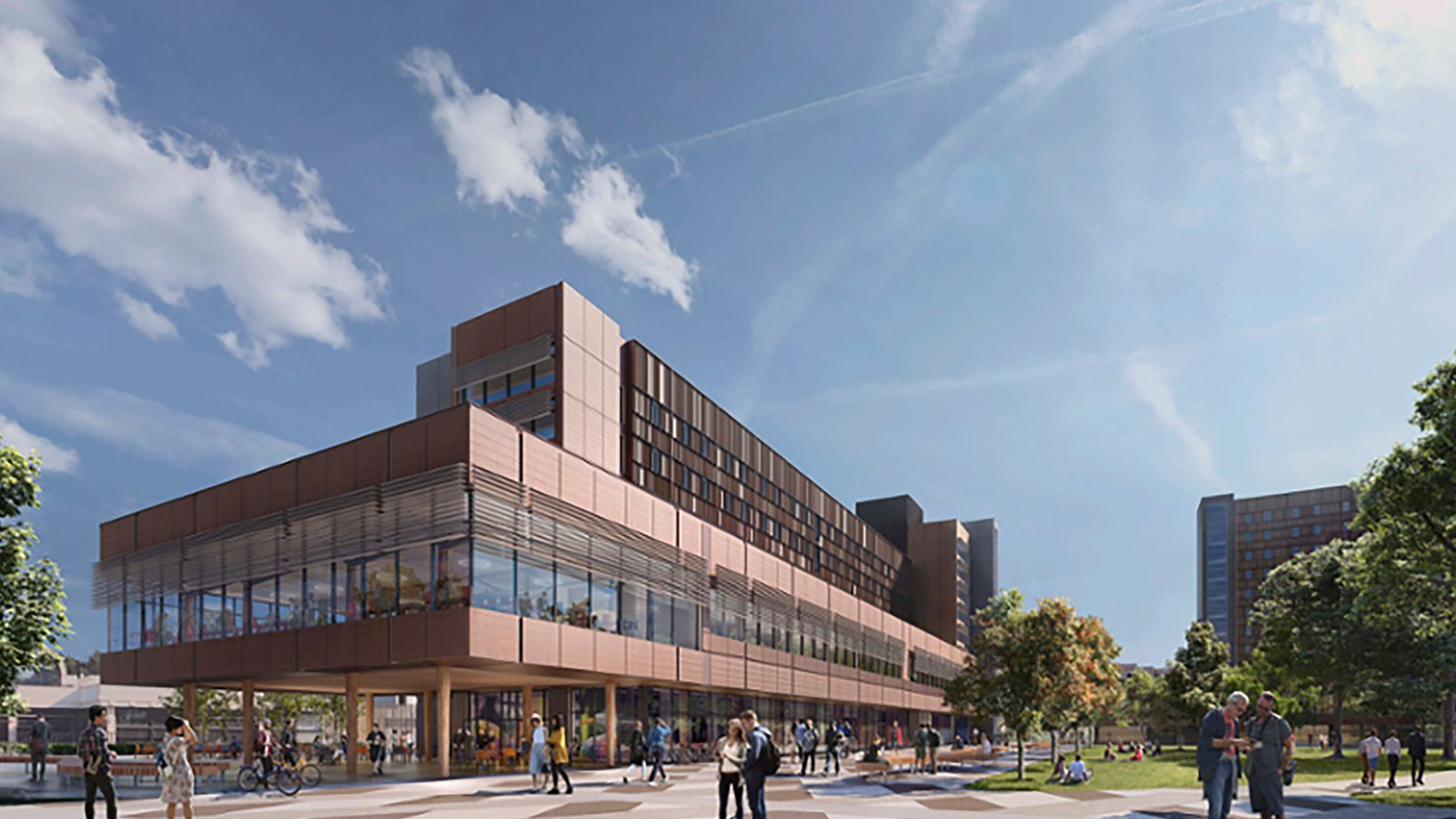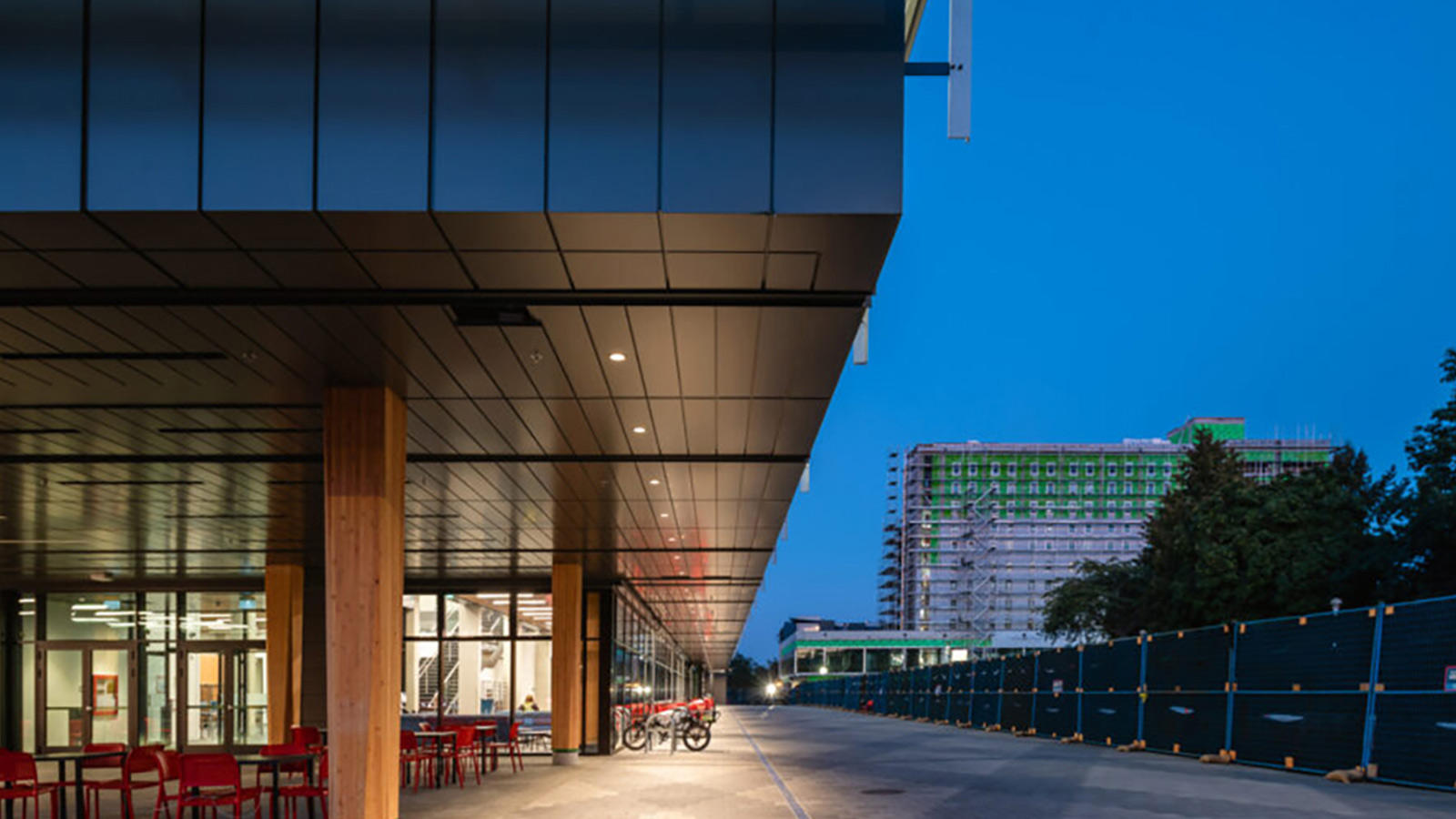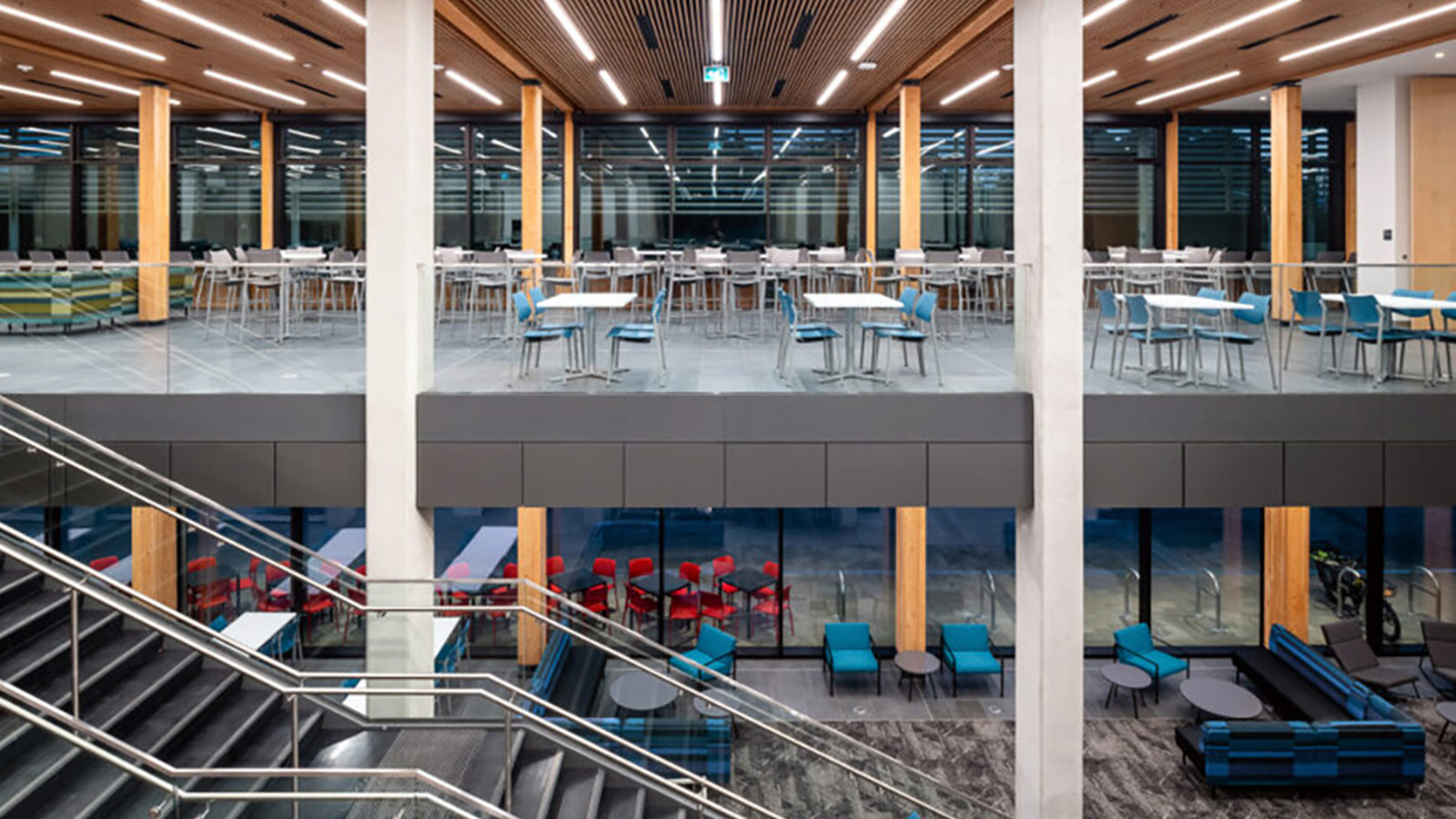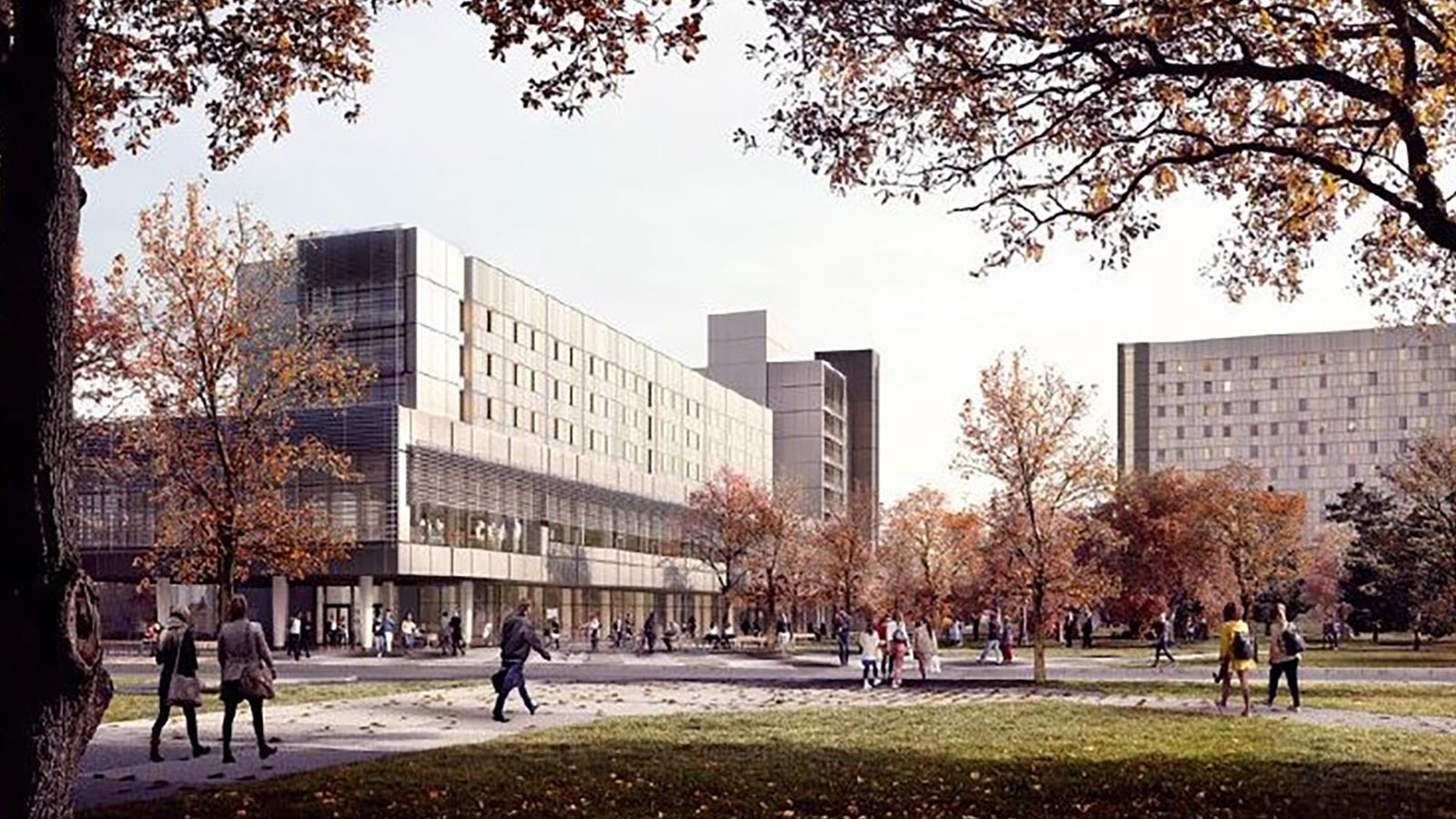

With over 32,000 m2 of floor area, the Student Housing and Dining project at the University of Victoria (UVic) is the largest building project of its kind in Canada to achieve Passive House certification. The project encompasses two buildings, Cheko’nien House and Sngequ House, that provide 783 student spaces, a 600-seat dining hall, two 225-seat classrooms, an Indigenous student lounge, and conference and common spaces.
The buildings incorporate a compact footprint and are taller than any other buildings on campus to both meet student housing needs and preserve greenspace. The development supports UVic’s commitment to energy efficiency, climate resilience, and greenhouse gas emission reductions as outlined in its Climate and Sustainability Action Plan. In addition to Passive House certification, the buildings achieved Step 4 of the BC Energy Step Code and LEED v4 Gold certification, and Cheko’nien House won the Mixed-Use Award at the 2024 SABMag Canadian Green Building Awards.
Authorized Dealer Houle led the intricate controls requirements for the Student Housing and Dining project with a Reliable Controls building automation system that includes 1,000+ MACH-Pro devices connected to several thousand control objects and 10+ integrated third-party control systems. The project required system integration on a massive scale, with the Houle team installing a nearly equal number of controllers to the UVic network as the campus previously employed in its entire system.

Houle worked closely with its Project Planning Services group to optimize the planning and efficiency of slab conduit installation, using both virtual design and construction modeling and building information modeling to optimize materials management and determine the most efficient system design. Materials were delivered just in time to minimize Houle’s on-site footprint and align with the project’s compressed schedule.
Reliable Controls devices control air-source heat pumps that heat domestic water, almost eliminating reliance on municipal natural gas. The new buildings reuse waste heat from showers and refrigeration equipment using energy recovery ventilation to warm incoming air, significantly reducing the energy needed for space heating. For example, captured heat from the kitchen preheats supply air to the first and second floors of Cheko’nien House using a responsive, flexible demand-control ventilation system.
A custom combination of mechanical cooling strategies and natural ventilation from windows in different areas of the buildings dramatically cuts energy consumption and saves annual cooling costs by an estimated 80 percent per year compared to conventional approaches.

To integrate Reliable Controls devices with the BACnet values of third-party products, Houle relied on the flexibility of RC-Studio software, an all-in-one engineering tool that provides a multivendor, multiprotocol solution. RC-Studio incorporates real-time alarming so facility managers can resolve issues in this sophisticated automation system before they become a problem.
Today building operators access the Reliable Controls system using RC-WebView, browser-based building management software that combines the power and accountability of enterprise tools with a simple interface. Thanks to RC-RemoteAccess software, Houle could provide data communications security without using additional routers or controllers.
Houle also configured long-term trends through RC-Archive, which gives UVic full control over building data and provides a dependable record of performance facility managers can use to continuously optimize energy efficiency and occupant comfort.
Houle overcame several significant challenges on this project, including COVID-19, third-party equipment shortages and delivery delays, and a deluge water event that flooded the second floor of one building and required over 100 Reliable Controls devices to be pulled out, bench tested, and reinstalled. Houle worked diligently to help troubleshoot issues beyond its initial project scope to ensure third-party systems as well as lighting and window controllers were functional and effectively integrated with the building automation system.

Achieving Passive House energy performance and LEED Gold certification depends on a high-performance building envelope complemented by efficient building systems, including HVAC and lighting systems optimized for energy efficiency and indoor comfort in a warming climate. Houle and Reliable Controls are pleased to be part of this first-of-its-kind development in Canada.
Special thanks are due to project manager Joe LeRoy, foreperson Jahmaal Hills, and programmers David O’Coffey and Steve Zeitz from Houle, whose expertise was well suited for this complex project and ensured excellence in system design and delivery.
Learn more about the Student Housing and Dining project on UVic’s website.
Jul 2024
32,000 m2 (344,445 ft2)
ABB pumps for variable frequency drives, Mitsubishi variable refrigerant flow system, design envelope pump controller, variable frequency drives, Somfy blind controllers, Swegon energy recovery ventilators, Kamstrup BTU meters, Halton kitchen demand-control ventilation system, Colmac domestic water heating air-source heat pumps